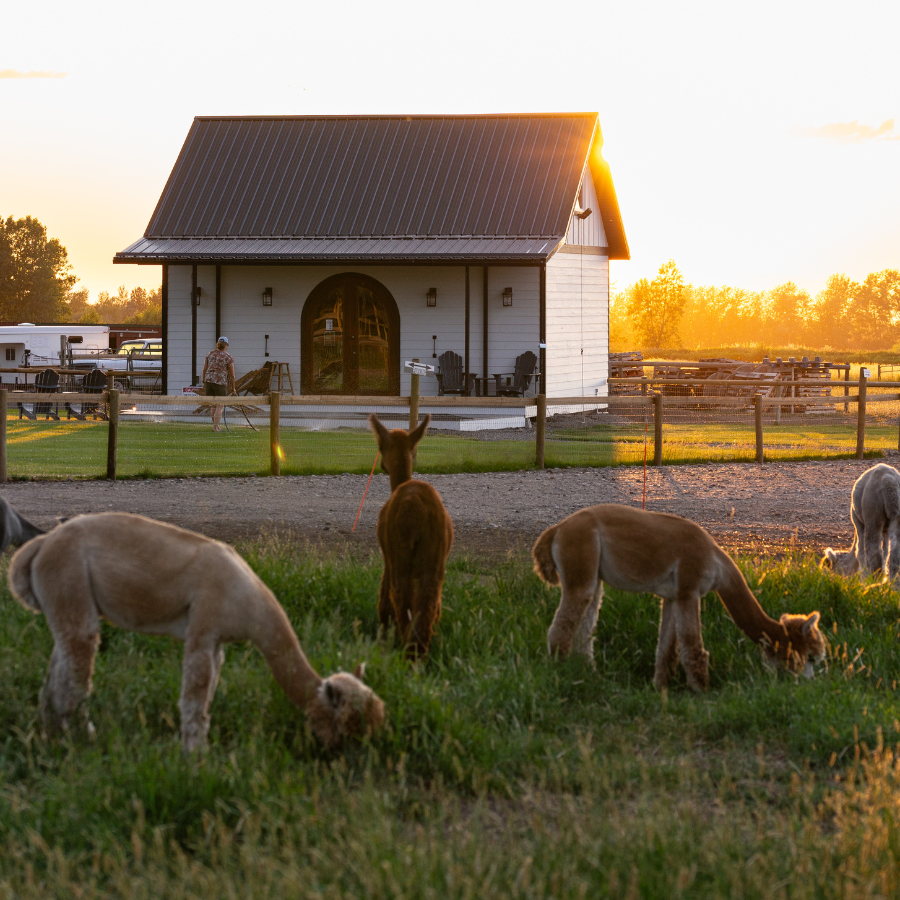
FARMERS TAX GUIDE
One of the most frustrating factors for any alpaca farmer when dealing with the IRS rules is getting a definitive answer. The code is often more gray than black or white; consider the following statement which is found in IRS Publication 225, "Farmers Tax Guide ":
"This publication covers some subjects on which a court may have made a decision more favorable to taxpayers than the interpretation of the Service. Until these differing interpretations are resolved by higher court decisions or in some other way, this publication will continue to present the interpretation of the Service."
I recommend everyone who farms alpacas obtain a copy of this handy guide at your local IRS office or at the IRS website" at www.irs.gov. It is very informative.
Once you've established that you are farming alpacas with the intent to make a profit, you can deduct all qualifying expenses from your gross income. The discussion from here forward presumes you are a cash basis taxpayer and you keep good records. Accrual basis taxpayers would also be allowed the same tax treatment, but their timing might be different.
First, the following items must be included in your gross income calculations:
1. Income from the sale of alpaca livestock
2. Income from sale of crops, i.e., alpaca fiber
3. Rents
4. Agriculture program payments
5. Income from cooperatives
6. Cancellation of debts
7. Income from other sources, such as services
8. Alpaca breeding fees
Then the following expenses may be deducted from this income:
1. Vehicle mileage at .41 cents a mile for all alpaca farm business miles
2. Fees for the preparation of your income tax return farm schedule
3. Alpaca livestock feed
4. Labor hired to run and maintain your alpaca farm (remember, you must not deduct the expense of maintaining your personal residence)
5. Repairs and maintenance
6. Interest
7. Breeding fees
8. Fertilizer
9. Taxes and insurance
10. Rent and lease costs
11. Depreciation on animals used for breeding, real property improvements, barns, and equipment

12. Alpaca farm-related travel expenses
13. Educational expenses, which improve your farming expertise
14. Advertising
15. Attorney fees
16. Farm fuel and oil
17. Farm publications
18. AOBA dues and registry fees
19. Miscellaneous chemicals i.e. weed killer
20. Alpaca vet care
21. Small tools having a useful life of less than one year
Please note: Personal and business expenses must be allocated between farm use and personal use, for instance, with such expenses as utilities, property taxes, accounting, etc. Only the farm use portion can be expensed.
Join the alpaca revolution! Alpaca is a sustainable alternative that is not only good for the earth, but for all of us. Alpaca wool is stronger, softer, more eco-friendly, and offers 85% greater wicking capability than merino wool. It is also hypoallergenic! Learn more about the benefits of alpaca in our Alpaca vs. Wool blog posts, shop our collections and follow us on social media!
